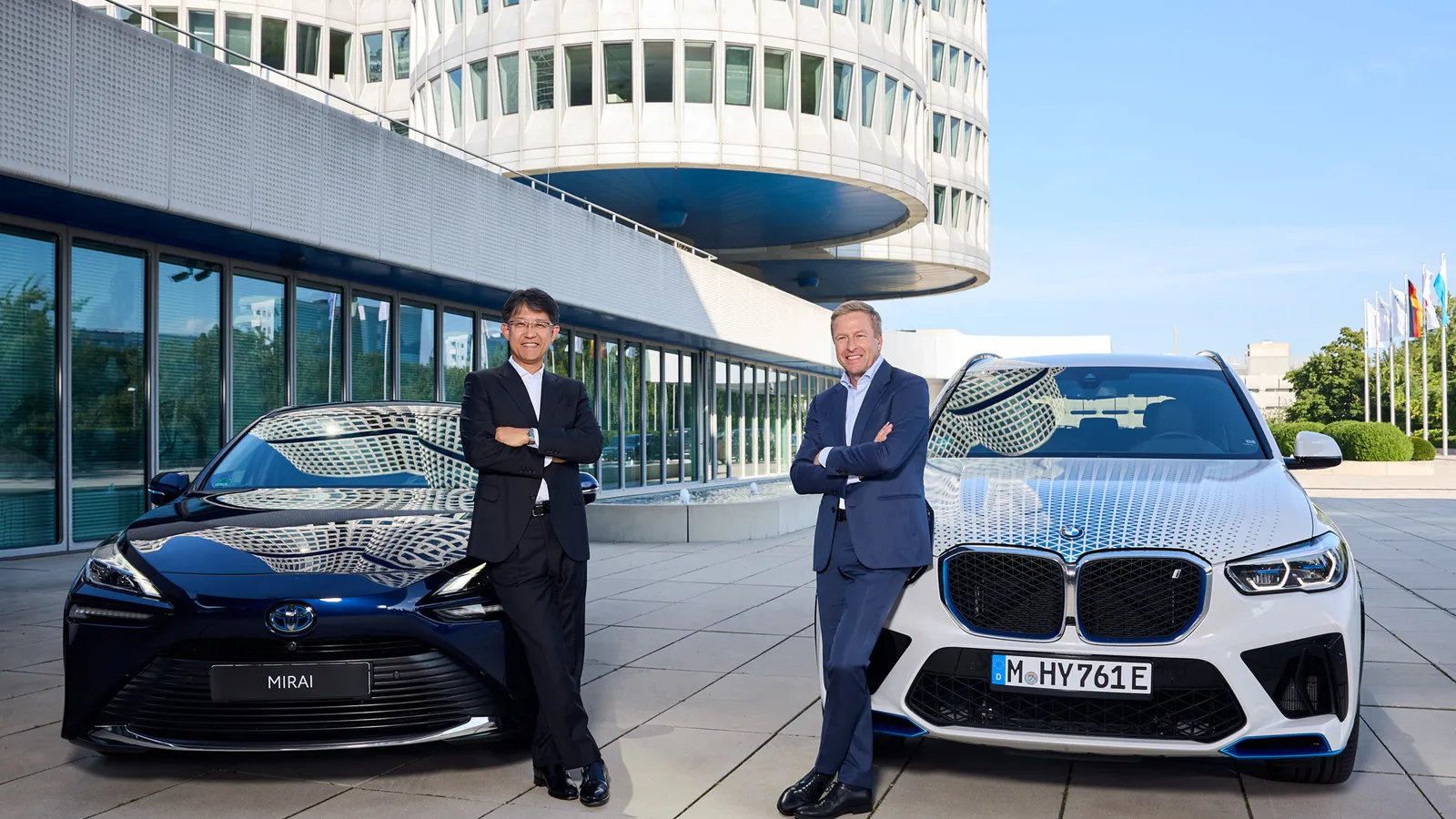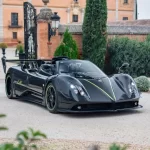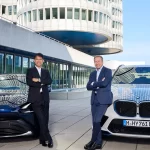

Toyota and BMW Collaborate to Develop Advanced Hydrogen Fuel Cell System
In a groundbreaking move, Toyota Motor Corp. and BMW Group have announced a partnership to co-develop a third-generation hydrogen-powered fuel cell system, marking a significant milestone in automotive innovation. This collaboration aims to expand the options available for fuel cell electric vehicles (FCEVs) while retaining the distinct characteristics of both brands.
BMW and Toyota are collaborating to launch a mass-produced hydrogen fuel cell vehicle by 2028, focusing on reducing costs through scaled production, ensuring a stable hydrogen supply, and advancing their shared vision of “technology openness” and a “multi-pathway” approach to carbon neutrality.
Toyota President Koji Sato emphasized the shared vision of both companies: “We share the same passion for cars and belief in ‘technology openness’ and a ‘multi-pathway’ approach to carbon neutrality.” BMW Chairman Oliver Zipse called the collaboration “a milestone in automotive history” and noted its potential to drive significant demand for fuel cell electric vehicles. Unlike battery electric vehicles (BEVs), FCEVs generate electricity through hydrogen fuel cells, offering rapid refueling times and a sustainable alternative to large battery packs. Toyota and BMW’s models will maintain their unique brand identities, combining cutting-edge technology with the distinct appeal of each automaker. The partnership signals a pivotal step toward a cleaner future, with both companies reaffirming their commitment to innovation and carbon neutrality.
Related posts






